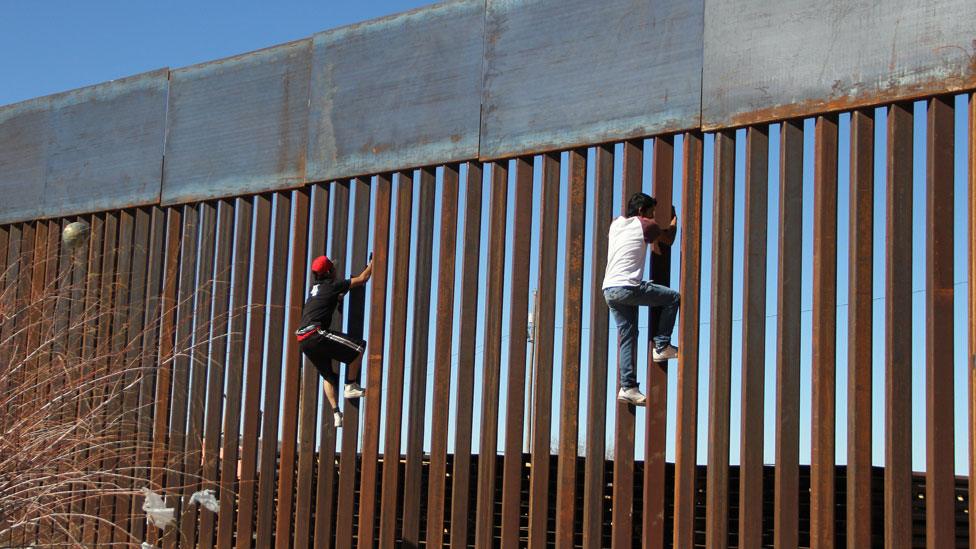US hails '40% drop' in illegal immigrants from Mexico
- Published

Mr Trump wants a wall built on the Mexican border, enhancing the measures already there
The number of illegal immigrants crossing into the US from Mexico went down by 40% from January to February, according to the US government.
Homeland Security chief John Kelly said the "change in trends" was a result of Donald Trump's tough policies.
The president has signed an executive order for an "impassable physical barrier" on the US-Mexico border and issued new guidance on deportations.
The measures have been condemned by Mexico as "hostile" and "unacceptable".
An estimated 11 million undocumented immigrants live in the US, many from Mexico.
Mr Kelly said on Wednesday that the number of "inadmissible persons" crossing the US-Mexico border had dropped this year from 31,578 to 18,762 in January to February - a period when the number of arrests of illegal immigrants normally increases.
"Since the administration's implementation of executive orders to enforce immigration laws, apprehensions and inadmissible activity is trending toward the lowest monthly total in at least the last five years," he said.

More on Trump and the border wall
'Build that wall' says border resident

New rules announced by Mr Trump's administration last month included plans to send undocumented people to Mexico, even if they are not Mexicans, and expand the criteria for immediate deportations.
The government said the new guidelines would not usher in mass deportations, but were designed to empower agents to enforce laws already on the books.
Mr Trump has also ordered a wall be built on the Mexican border and insisted Mexico will pay for it, despite its repeated refusals.
The president made immigration and border control a key part of his election campaign, promising to protect Americans from "bad dudes".
Meanwhile, his revised travel ban, signed on Monday, barring people from six mainly Muslim countries has faced its first legal challenge from the state of Hawaii.
State lawyers have asked for an emergency block on the order, saying the measure will harm its residents, businesses and schools.
Mr Trump's previous order was halted by the US federal courts amid concerns that it unfairly targeted Muslims. It caused chaos at airports and mass protests.
Although the revised measure removed some of the more controversial language on religious minorities, Hawaii Attorney General Doug Chin said it still constituted a "Muslim ban" due to the countries involved and past statements from the administration.
The directive, external, which includes a 120-day ban on all refugees, takes effect on 16 March.
Citizens of Iran, Libya, Syria, Somalia, Sudan and Yemen, the other six countries on the original 27 January order, will once more be subject to a 90-day travel ban.